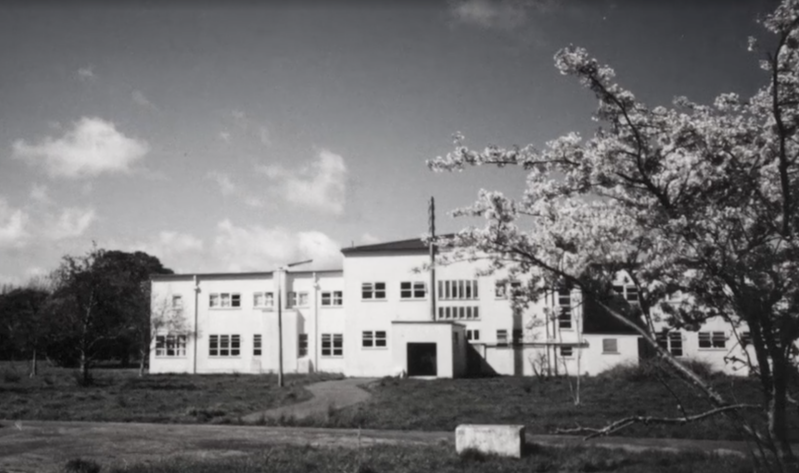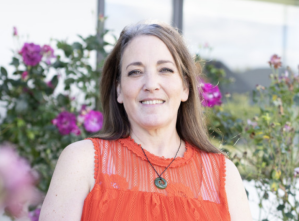
The hard-hitting report, which includes graphic details of abuse and neglect, among others in institutions belonging to Christian faith groups, was released today (Wednesday) under the title, ‘Whanaketia – Through pain and trauma, from darkness to light’ and includes a challenge to faith leaders to issue public apologies.
The inquiry heard from 2,329 survivors about the abuse they experienced and how it continues to affect them today.
Some 200,000 vulnerable children, youth and adults, out of 650,000 in care during the period were abused, and “even more were neglected,” according to the report, adding that leaders of faith-based institutions tried to cover up abuse by moving abusers to other locations and denying any involvement.
They “knew, or should have known about the abuse and neglect that was happening. They failed not only in their duty to keep people in their care safe from harm, but they also failed to hold abusers to account.”
Perpetrators included “male, female, young, old Pakeha, Māori, Pacific peoples, people from other ethnic groups, leaders, respected members of communities, unskilled workers, caregivers, volunteers, educated professionals including teachers, social workers, psychologists and medical staff,” the report noted, and adds, “They were also religious leaders including bishops, priests, religious sisters, religious brothers, deacons, lay people.”
The true number of abuse victims will never be fully known because records were never created, got lost or were destroyed. Many abuse victims died in care or committed suicide, according to the report.
In this first of a two-part report on the concluded investigation, Christian Daily International examines what actually happened to so many vulnerable victims and survivors during that 50-year period at the hands of people purporting to be carers, and some even presenting themselves as followers of Jesus.
“The Bible quotes Jesus as saying it would be better for someone to tie a rope around his or her neck and throw themselves into the deepest part of the ocean to drown than to ‘cause one of these little ones who believe in me to stumble’ (Matthew 18:6) and elsewhere he warns that ‘nothing is secret that will not be revealed, nor anything hidden that will not be known and come to light.’ (Luke 8:17) Both passages appear especially relevant when reading through the 16-volume report that contains more than 3,000 pages and whose hard copies weigh about 14kg,” commented CDI's International Correspondent Chris Eyte after reviewing the report.
It tells the harrowing stories about abuse victims at the hands of some Christian faith-based institutions in New Zealand, alongside state institutions. The settings included children’s homes and residences, including reformatory residences, run by Anglican, Methodist, Presbyterian, The Salvation Army and Catholic churches, the report said.
It outlined different reasons as to why the victims had been put in care. However, they were factors that often placed them at an increased risk of abuse and neglect.
Circumstances for placements include deafness, disabilities and mental health issues with unmet needs, a poverty background or significant “adverse childhood events.” Racial backgrounds such as being “Māori, Pacific, or Takatāpui” with resulting racial discrimination was another reason, as well as simply deference, often by birth parents, to the authority of spiritual leaders.
“State and faith-based institutions were entrusted to care for many children, young people and adults. New Zealanders held the leaders of these institutions in the highest esteem. These leaders had a duty to nurture, protect and help people flourish. They failed in their duty,” said the report.
“Instead of receiving care and support, children, young people and adults in care were exposed to unimaginable physical, emotional, mental and sexual abuse, severe exploitation and neglect. Abuse and neglect were widespread throughout the Inquiry period in State and faith-based care institutions. Any abuse and neglect, let alone the prevalence of it, could not be justified by the standards of the day and certainly cannot be justified now.
“It is a national disgrace that hundreds of thousands of children, young people and adults were abused and neglected in the care of the State and faith-based institutions. These gross violations occurred at the same time as Aotearoa New Zealand was promoting itself, internationally and domestically, as a bastion of human rights and as a safe, fair country in which to grow up as a child in a loving family. If this injustice is not addressed, it will remain as a stain on our national character forever.”
The abusers were skilled at navigating failures in the care system and took advantage of positions of power. They came from “all walks of life” and were often trusted members of the community not held accountable for their actions.
“Faith-based institutions had some unique factors that contributed to abuse and neglect in their care. The assumed moral authority and trustworthiness of clergy and religious leaders allowed abusers in faith-based institutions to perpetrate abuse and neglect with impunity. Religious beliefs were often used to justify the abuse and neglect, and to silence survivors. Hierarchical and opaque decision-making processes impeded scrutiny and making complaints.”
These “actions” mentioned above do not make for easy reading and resulted in devastating outcomes for survivors such as separation from family and being told that no one loved them. Other examples include pacific race abuse survivors feeling cut off from their native language and culture, deaf people suffering abuse for using sign language and blind people denied the use of braille.
“Some survivors suffered trauma when they left their faith because of abuse and neglect. For some, leaving their church community meant losing their family, friends and job. Some survivors left their churches voluntarily, but others told the Inquiry they were excommunicated (forced to leave), shunned and blocked from seeing their family. The impact was a complete loss of identity, community, physical and financial assets and was emotionally devastating.”
Survivors were unable to get jobs in adulthood because they were either denied education or too traumatized to learn, and the report mentioned a profound negative effect on physical and mental health. Sexual abuse survivors suffered “immediate and lasting trauma.”
The break-up of birth families also led to estrangement issues and affected the ability of survivors to bond with their own children. Violence reported as “embedded in care settings” led to some survivors copying the behavior and becoming abusers, and then led to a life of crime: “Some became trapped in care and remain institutionalized today. Others progressed from prison to psychiatric care due to anti-social behavior, substance abuse and ongoing mental distress.”
***Warning: the following contains at times graphic details from personal testimonies***
The report contains many stories of the abuse survivors including Debbie Morris-Jenkins, born in 1976, who gave permission to talk about her sexual abuse experiences for the purposes of the report. She was put into Christchurch Methodist Children’s Home from 1981 to 1983 after her parents’ marriage fell apart.

“My caregiver at the home was mean and horrible. One night I vomited on my panda bear, and she made me throw it away. If I wet the bed, she’d give me a smack and make me sleep in it. Given the slightest chance, she’d ridicule and punish us. Once, my brother and I didn’t want to eat some pumpkin, so we dropped it under the table. She made us eat it off the floor like dogs.”
Morris-Jenkins also endured physical smacking by a member of staff from the children’s home for crying after a bowl was put on her head to shape a haircut. “I bawled my eyes out, but they just smacked me.”
At the related school, teachers hit children with rulers, “And if we were punished at school, we’d also get punished at the home. I felt like I was punished the whole time.”
However, arguably an even worse experience happened when a foster couple cared for Morris-Jenkins for two weeks, when she was between six to seven years old.
“She [the woman] wasn’t around a lot, and he raped me daily. They lived in a grey brick house, with flats down the back. He would put a towel on the bed, give me a dolly and use it to show me what we were going to do. Then he’d just get on me and rape me. I was just a little girl and I’d be screaming in pain, wondering why the neighbors couldn’t hear me as they were so close. Then he’d say, ‘Don’t tell anyone, it’s our secret’.
“I think I was there near the end of my stay at the children’s home because I remember when Dad got me from the home, I thought, “Thank God I won’t have to go back to that foster couple again”.
“The thought he might have done it to someone else has tormented me over the years.”
Police later refused to take action citing a lack of evidence after she confessed the rapes to her mother. “It was my word against his.” A police report, seen years later by Morris-Jenkins, included a verdict by a police doctor that she lost her virginity but “could’ve lost it riding a horse or falling off a bike. I ended up burning the report because it was so traumatizing.”
Morris-Jenkins also said she had been raped by other men later in her life, including by members of the outlaw motorcycling club, the Road Knights.
“But that was just my life – I thought – I thought there was no point in telling anyone because when I did, no one listened.”
Morris-Jenkins said the Methodist home had been a “haven for sexual predators.”
“It’s just not acceptable to give a child to any person that says, ‘I’ll take a kid’ and thinks, ‘you can pay me while I rape them for two weeks’.
“A Methodist representative looked at records from the children’s home and there’s actually a note saying that the foster couple wasn’t suitable to care for children, yet I was still sent there. There was also a note saying I had specifically asked not to go back to them.”
Eugene Ryder, born in 1971, from Tāmaki Makaurau Auckland and taken into care for a four-year period aged 11, also retold his harrowing experiences for the report, which included placements in a number of care homes, where he suffered abuse including being raped with a broom handle.
Then he went to The Salvation Army’s Hodderville Boys’ Home aged 13 or 14, and said, “That place was the worst.” He arrived and wet the bed out of fear. The commotion of being teased and then beaten by other boys after urinating caused a Salvation Army captain to arrive on the scene.
“At first, I thought he was there to help me, and I was thanking him. Then he told me that I caused it, and then I knew he was going to give me a hiding. He stripped me off and I had to bend over a table, naked. He’d take a run up behind me and whack my [bottom] so hard my head would hit the table.”
Another survivor called ‘Ms Ni’ for anonymity’s sake, was put into care aged 11 between 1974 and 1976. But she suffered sexual abuse at a Presbyterian youth group.
Her mum and dad were involved in running the church but they had a “hypocritical lifestyle” by going to church but also partook in parties with alcohol and being members of the Sun Club, presumably a nudist camp, although the report does not provide details on that point.
A new Presbyterian minister in her last year at primary school started youth group camps. Ms Ni said she had few friends and felt vulnerable to being given attention because the family was isolated. She often found herself alone with the minister who “touched my body all over, including under my clothes and around my breasts and vagina. He also made me touch his penis. He would take opportunities when we were isolated.”
“The abuse happened at church, in my home, at youth group camps and outings, in the transport used for youth group and at church events. He’d isolate you but make you feel special that you were being chosen to be with him.
“There was this undercurrent of inappropriate touching and open nudity on the camps and at youth group. We were encouraged to skinny dip and there would be ‘accidental’ touching underwater. The minister would change in front of us without any attempt at modesty and encouraged us to do the same, both in front of him and in front of each other. Promiscuity was encouraged but also a secret.
“There was so little supervision by the church. Our parents trusted the minister to look after us because he was a minister, and also because he had kids and a wife.”
A local school principal had insight into Ms Ni and others being targeted by the minister and told the police. “It should’ve been a headline story – there were so many people impacted by the minister’s abuse that it should’ve been made public and been stopped. But nothing went any further than that trip to the police station.
“The touching continued to happen. It only stopped when the minister moved on to another church when I was in third or fourth form. By then, the damage was done.”
Ms Ni tried to committee suicide and has suffered multiple mental health issues and used alcohol and cannabis. She ended up working as a prostitute for a period. Now in her 70s, the abuse affected her education and job prospects, and means she has to continue to work for a living.
“Everyone has had to deal with the minister’s abuse in their own ways,” she said.
In the upcoming second part of this story, Christian Daily International will examine the reaction by churches to the Abuse in Care/Royal Commission of Inquiry report.





